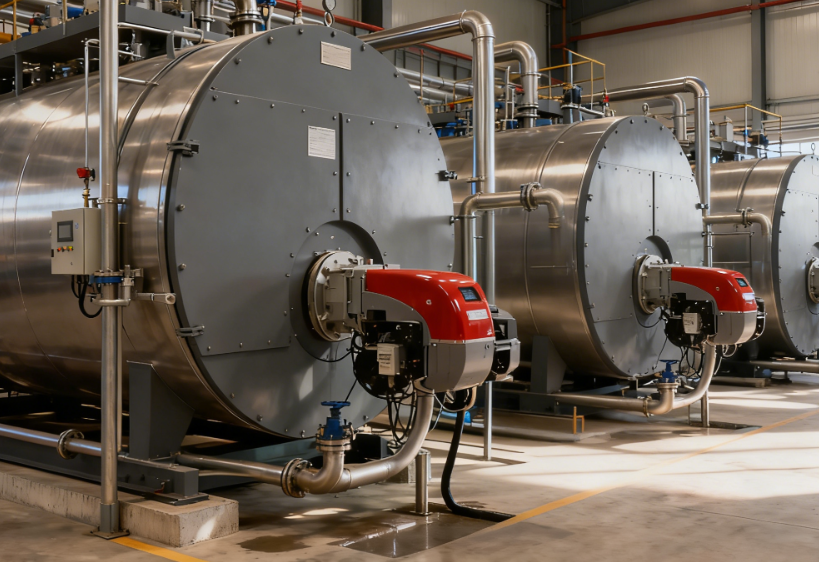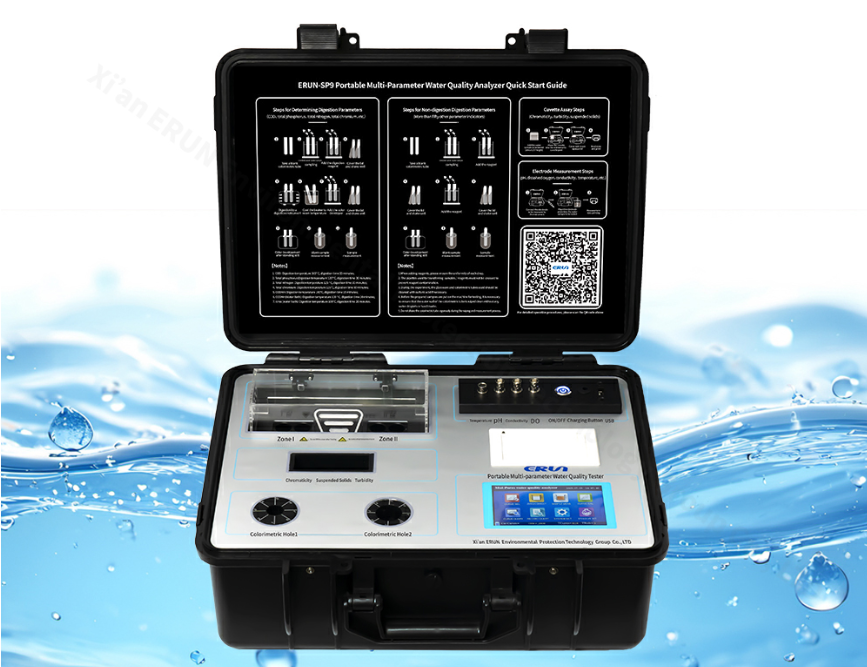Maintaining proper water quality is one of the most critical tasks in boiler operation. Among the many parameters engineers monitor daily, pH is often overlooked because it seems simple. However, the effect of high pH in boiler water can cause significant operational problems, ranging from corrosion and scaling to reduced thermal efficiency. Understanding why high pH occurs, its impact on boiler systems, and how to accurately monitor it is essential for safe and efficient operation.
This article explains the risks of elevated pH in boiler water and introduces a practical solution for accurate multi-parameter testing in the field.
Several factors contribute to elevated alkalinity levels in boiler water. Understanding these sources helps operators manage them more effectively.
Boiler water treatment programs often rely on alkaline chemicals, such as caustic soda or phosphate-based formulations, to prevent corrosion caused by acidity. When these chemicals are overdosed or added without accurate monitoring, pH can rise beyond recommended limits.
Feedwater containing high levels of carbonates or bicarbonates can naturally increase pH once heated. If the makeup water system lacks adequate softening or demineralization steps, pH may trend upward consistently.
Inadequate blowdown allows dissolved solids to concentrate inside the boiler. As concentration increases, pH may elevate due to the accumulation of alkaline components.

When pH exceeds the recommended operational range, the boiler system becomes vulnerable to multiple forms of damage.
While moderate alkalinity helps prevent acidic corrosion, excessively high pH creates caustic corrosion. In areas with high heat flux—such as waterwalls and riser tubes—high pH can concentrate under deposits and aggressively attack metal surfaces, leading to cracks or boiler tube failures.
Alkaline conditions promote the precipitation of minerals such as calcium, magnesium, silica, and phosphate salts. These deposits form insulating layers on boiler tubes, reducing heat transfer and increasing fuel consumption. In extreme cases, scaling can cause overheating and tube rupture.
High pH encourages foaming at the water surface. Foam carries water droplets into the steam system, contaminating steam lines, turbine components, and downstream equipment. Carryover also results in water hammer and costly maintenance.
Both scaling and corrosion directly impact boiler efficiency. Every millimeter of scale increases fuel consumption, and corrosion-related failures lead to unplanned downtime. High pH, if not corrected, becomes an expensive problem.
The safe operating pH range depends on boiler type, pressure, and treatment method. Low- and medium-pressure boilers generally operate between 9.0 and 11.0, while high-pressure boilers may require slightly tighter control.
When pH drifts above these ranges, corrosion, scaling, and carryover risks increase rapidly. Continuous monitoring is essential to ensure corrective action is taken before issues become severe.
Accurate water testing is the foundation of effective boiler water management.
Operators often rely on:
electrode-type pH meters
laboratory titration
handheld conductivity meters
offline dissolved oxygen analyzers
While effective, these tools require multiple instruments and may not be convenient for field conditions.
Boiler water cannot be evaluated using pH alone. Parameters such as conductivity, TDS, salinity, dissolved oxygen, and temperature are equally important. Evaluating them together provides a complete picture of water chemistry and allows operators to understand the root cause of pH fluctuations.
The ERUN-SP9 addresses the need for accurate and efficient field testing. It uses an advanced optical method with a 16-channel design capable of detecting 60+ water quality parameters, including:
pH
conductivity
TDS
salinity
dissolved oxygen
water temperature
With its flexible free-combination configuration, operators can customize parameter sets for different boiler applications. Its built-in dual temperature-controlled dissolver and high-capacity lithium battery enable reliable field testing without external power—ideal for on-site boiler rooms, power plants, and industrial facilities.

The ERUN-SP9 offers several advantages for industrial boiler maintenance teams:
High measurement accuracy via optical and electrode dual-technology
Comprehensive analysis with 60+ measurable parameters
Strong field adaptability with portable design and long-lasting battery
Reduced test time by eliminating the need for multiple instruments
Reliable multi-environment performance, suitable for boiler rooms, power stations, and industrial facilities
Its precise measurement capability helps prevent corrosion, scaling, and efficiency loss—reducing operational costs and extending boiler lifespan.
High pH in boiler water poses significant risks, including corrosion, scale buildup, foaming, and efficiency loss. Effective pH management requires accurate and frequent multi-parameter testing combined with proper chemical treatment and blowdown control.
The ERUN-SP9 portable multi-parameter water quality tester provides boiler operators with a reliable, field-ready solution for comprehensive water monitoring. Its advanced optical method, 16-channel design, and 60+ parameter capability make it an ideal tool for ensuring long-term boiler safety and performance.
To explore more water quality testing solutions, visit erunwas.com.